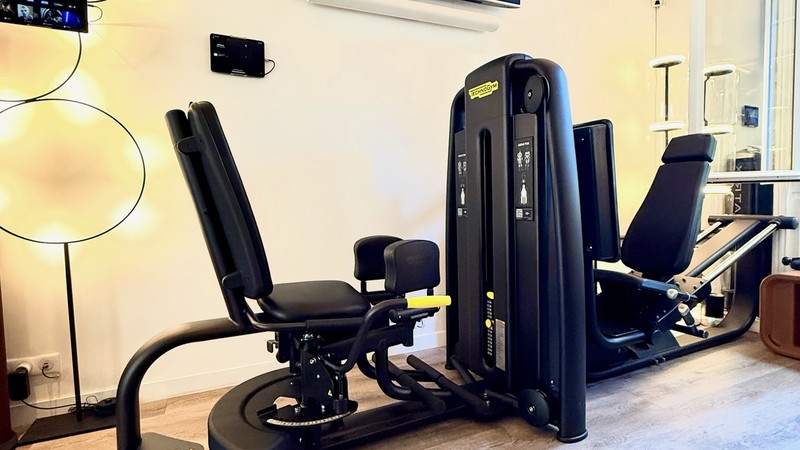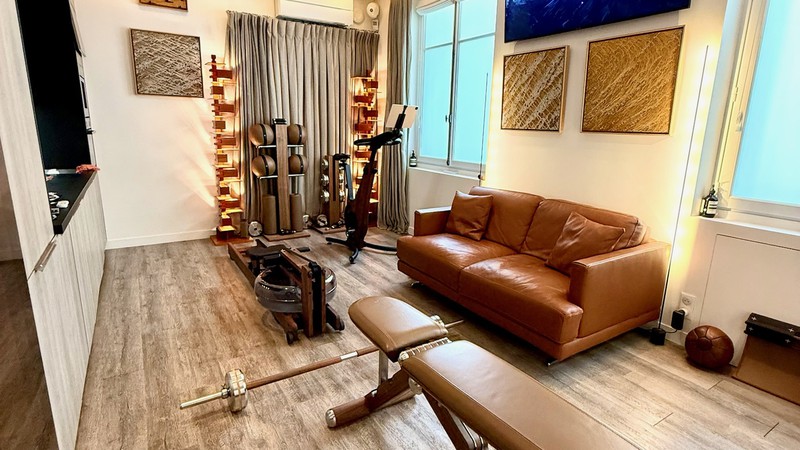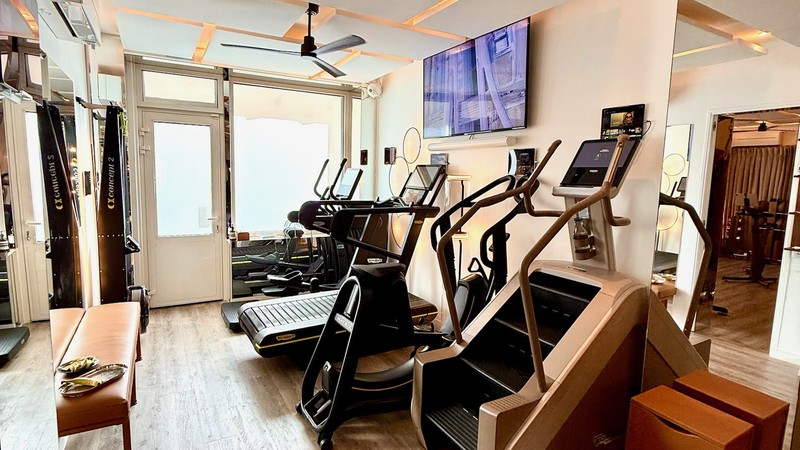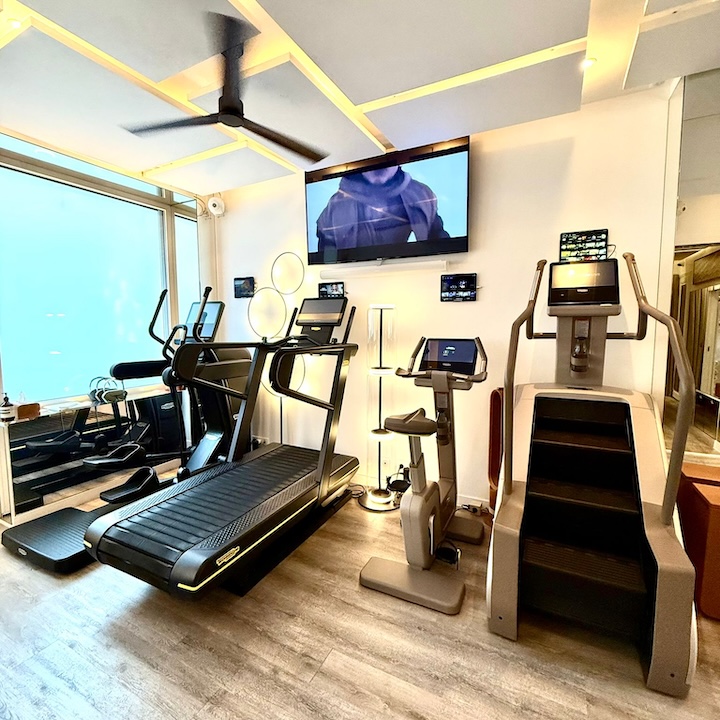The Strength You Don’t See: How Fitness Shapes Your Mindset
When people think of fitness, they often picture visible results: defined muscles, toned arms, improved posture. But the most powerful transformations often happen beneath the surface. Long before your body changes, your mind does. Fitness, at its core, is a mental game. It’s about who you become through the process, not just what you look like when you arrive. It’s a slow and steady reprogramming of how you think, respond, and persevere.
We’re used to tracking progress in numbers—in kilograms lifted, reps completed, minutes shaved off. But the more subtle evolution is in your mindset. You learn patience, you learn to stay calm under tension, and perhaps most importantly, you begin to build a sense of identity around effort. You no longer avoid challenges—you walk straight into them, knowing they shape you.

Showing Up: A Lesson in Discipline
Stepping into the gym, even when you don’t feel like it, is a quiet act of self-respect. It’s the decision to show up not just for your goals, but for yourself. And over time, this simple habit rewires your brain. You stop negotiating with discomfort. You stop waiting to feel “ready.” You begin to associate effort with progress. It’s the art of keeping a promise, quietly, consistently, without applause. That’s discipline.
Discipline in training bleeds into life. You stop skipping the hard things outside the gym, too. You approach tough conversations more directly, manage stress with more clarity, and make decisions from a place of strength, not emotion. The ability to train on your low-energy days becomes the foundation of a deeper self-trust. And that trust becomes the baseline for everything you do.
Training Builds Mental Clarity
Movement clears the noise. After a good session—whether it’s heavy lifting, a cardio push, or a slow, controlled workout—your mind feels lighter. This isn’t just anecdotal. Exercise has been shown to increase blood flow to the brain, improve memory, and regulate mood by boosting serotonin and dopamine levels. Training quite literally rewires the chemistry of your mind.
But it’s not only chemical. Training gives you space. Time away from screens, from decision fatigue, from external pressure. In that focused bubble, you reconnect with your breath, your body, and your intention. That space can feel like therapy—an hour where you don’t have to be anything but present. That state of clarity can create a domino effect across the rest of your day. Your thinking is sharper. Your emotions are more grounded. Your sense of self is re-centered.

Control What You Can
Fitness teaches a crucial psychological principle: control the controllable. You can’t predict the market, the weather, or someone else’s opinion—but you can control whether you move your body today. Whether you rest or push. Whether you fuel yourself well or cut corners. That sense of agency—especially in an unpredictable world—is powerful. It builds calm.
In training, you make hundreds of small choices that accumulate into strength. You learn that consistency matters more than intensity, that resilience is built in the boring reps, and that setbacks don’t define you—your response to them does. Fitness becomes your rehearsal ground for life’s chaos. And when life hits, as it inevitably does, you already have the muscle memory of showing up, adapting, and staying grounded.

Learning to Trust the Process
One of the most transformative aspects of consistent training is the shift from chasing instant results to embracing the process. Early on, you might measure progress by how much weight you lift or how your body looks. But over time, your focus evolves. You start to value consistency over perfection, effort over outcome. Fitness teaches you that true growth happens slowly—and that’s okay. By showing up regularly, even on the days when motivation is low, you rewire your brain to value patience, perseverance, and long-term vision. This mindset begins to bleed into other areas of your life—your work, your relationships, your goals.
Confidence Is Built, Not Given
There’s something powerful about pushing through that last rep when your muscles scream no—but your mind whispers yes. In that moment, you’re not just getting stronger physically. You’re proving to yourself that you can do hard things. The barbell becomes a metaphor for challenge—and every time you lift, you’re reinforcing the idea that pressure is something you can carry.
Over time, this compounds. You lift heavier. You move better. You recover faster. But more than that, you begin to trust yourself. You trust your ability to be uncomfortable, your capacity to grow, your ownership of effort. You become the kind of person who doesn’t wait for confidence to arrive—you build it, with reps, sweat, and presence.
The Confidence of Capability
There’s a quiet confidence that comes from realizing what your body can do. It’s not about looking a certain way, but about feeling powerful in your own skin. Whether it’s mastering a new movement, completing a tough session, or recovering from an injury, every challenge overcome in training reinforces the idea that you’re capable. You learn to trust yourself more. This physical confidence naturally spills over into mental and emotional resilience. You carry yourself differently. You start to face life’s stressors with a bit more grit. And all of it started with the decision to move your body—regularly, intentionally, and with care.

Discipline That Becomes Self-Respect
At first, discipline might feel like a restriction: waking up early, planning your meals, making time to train. But over time, it becomes an act of self-respect. You begin to realize that taking care of yourself isn’t selfish—it’s necessary. The discipline you develop in the gym reinforces a deeper belief: that your time, your health, and your energy matter. This shift in mindset influences how you set boundaries, how you invest your time, and how you treat yourself daily. In that sense, fitness doesn’t just make you stronger. It helps you show up for yourself in a way that feels grounded, intentional, and sustainable.
Fitness as Self-Leadership
Ultimately, training isn’t about aesthetics—it’s about ownership. It’s a daily practice of leading yourself with intention. Of saying: I matter enough to take care of my body. I’m worth the effort. This shift in perspective has long-term effects. Your workouts stop being a chore and become a declaration of value.
And as you lead yourself physically, your mental leadership grows too. You learn to delay gratification. To push past resistance. To stay calm under pressure. These are not just gym skills. These are life skills. Fitness, done well, teaches you how to parent yourself. How to set your own standards. How to pursue goals not with anxiety, but with steady energy and clear commitment.
You might join a fitness program for physical reasons. But the real return on investment? It's mental. Emotional. Invisible—until it’s not. Because it changes how you carry yourself, how you speak to yourself, and how you meet the world.
If you're ready to train your mind as much as your body, you're already halfway there.









